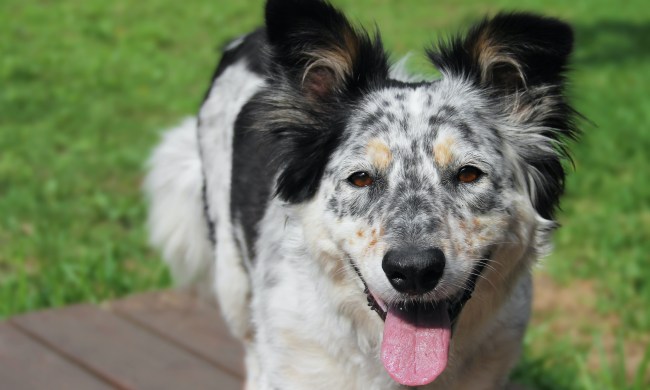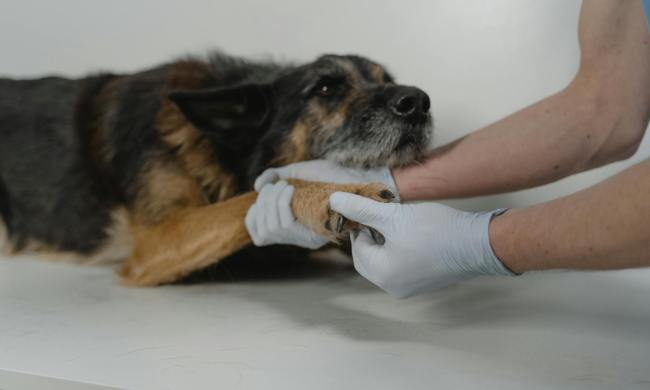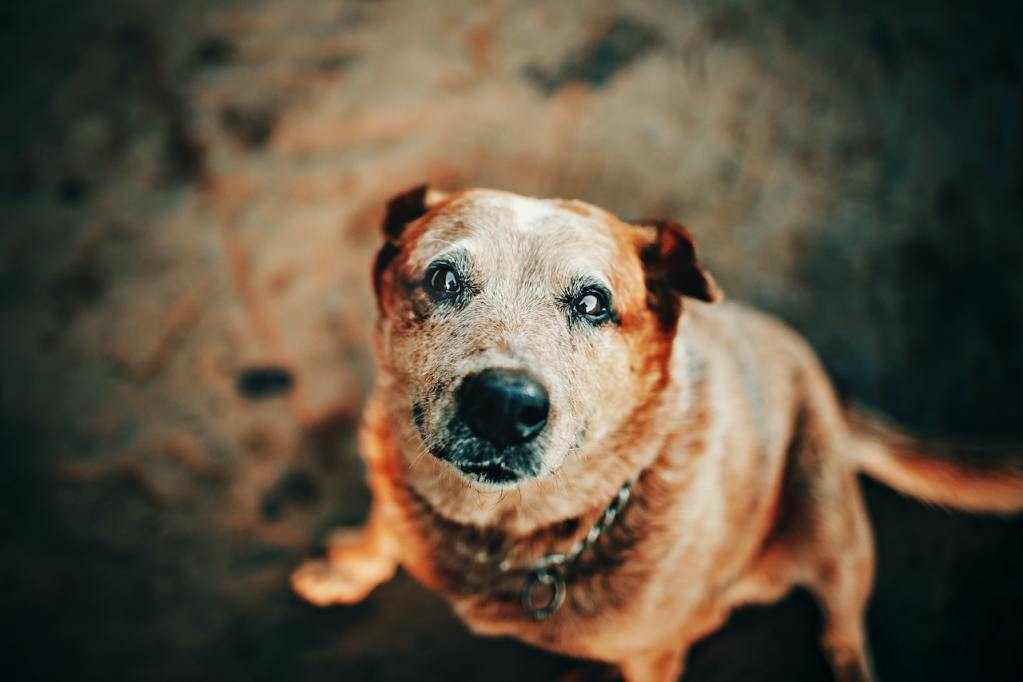
If you’ve stumbled across this article after searching terms like “old dog behavior before death,” we are so sorry for your situation. There’s nothing we want more than for our fur babies to live forever. Unfortunately, death is a part of life we all must face, and the loss of a pet is a major trauma because of the tight bonds we form with our fur babies.
Knowing death’s a part of life doesn’t make the loss of a pet any easier — it can be as difficult as losing a human family member. Despite the many ways we can try to grieve once our beloved pet has passed, it can be helpful to know the end is near. Here’s what you should look for if you suspect your dog may be nearing the end of the road.
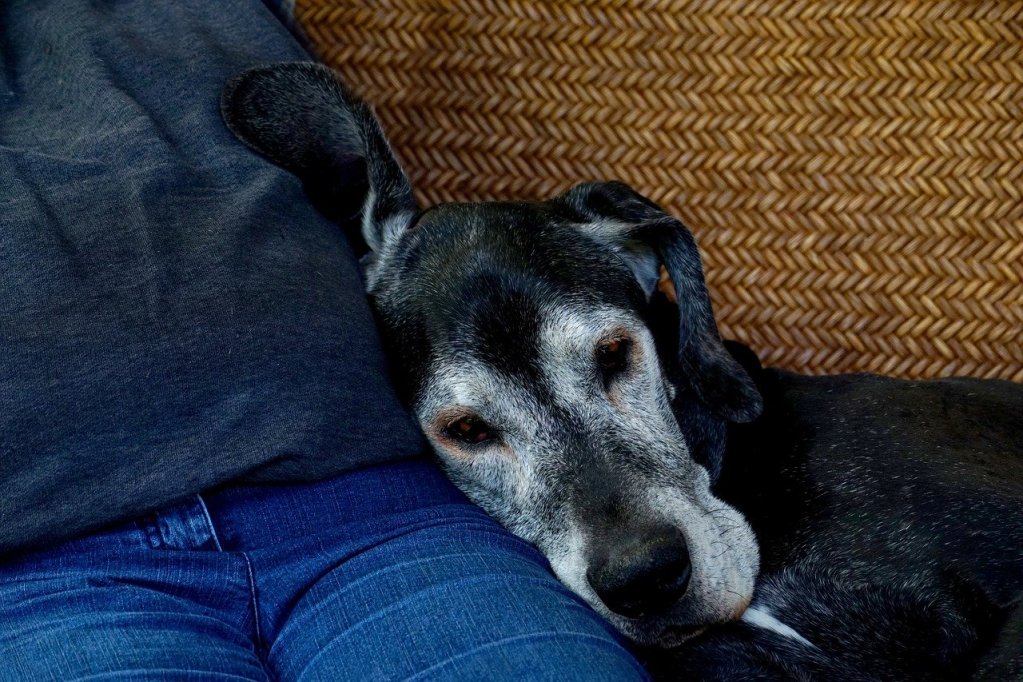
What are the signs of a dog dying of old age?
According to Leesville Animal Hospital in Raleigh, North Carolina, very few dogs pass away from old age itself and not an underlying condition. In any event, there are signs you should be aware of as your beloved pooch begins his final transition. Your dog may experience some or all of the following symptoms:
- Lack of appetite
- Refusal to drink water
- Pronounced fatigue
- Loss of interest in favorite toys or people
- Extreme lethargy
- Lack of coordination
- Nausea and vomiting
- Restlessness
- Confusion
- Loss of consciousness
- Decreased respirations
- Incontinence
- Muscle spasms or twitching
- Hiding
- Sudden desire to be with you at all times
In many cases, these symptoms will come on gradually. Several months to several weeks before your dog passes, they may stop grooming, lose weight, drink less, and experience digestive upset. Your dog’s coat and eyes may become dull. Roughly one month before your dog passes, you may notice a drastic change in their weight, a loss of interest in activities, changes in breathing, eye problems, and skin conditions. Some dogs may begin to self-isolate during this time, while others become needy.
During your dog’s final days, they will lose interest in eating, drinking, and playing. They may appear to stare off into space and become unusually still. Other dogs become restless and pace or twitch. Behavioral changes are also common during the last few days of life. Your dog may also experience incontinence, extreme weight loss, and loss of coordination.
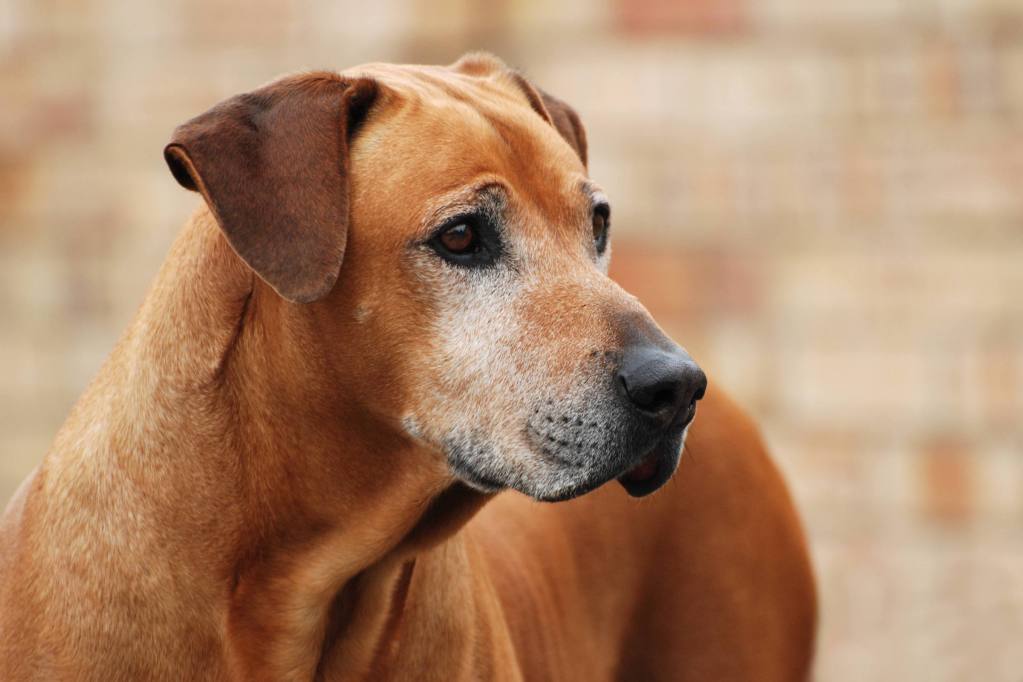
How long does it take for dogs to pass away naturally?
If your dog is showing signs of slowing down due to old age, it’s only natural to wonder what happens next. From wondering how much more time you have with your beloved fur baby to wondering how long the decline will take, a plethora of questions springs to mind when your dog is ailing. Unfortunately, we can’t give you any concrete answers, but we can provide you with a general timeline of what happens when your dog is nearing the end of life.
The end-of-life period can last days, weeks, or even months. Here are things to look out for if you have a senior dog, especially if your dog suffers from health problems.
- 3 months prior to passing: Your dog’s eyes may become dull, and you’ll most likely begin to notice changes in his coat’s appearance. Some dogs may begin to shed much more than normal. Digestive issues such as loss of appetite, nausea, vomiting, and diarrhea may begin.
- 3 weeks prior to passing: Additional weight loss is common at this stage. Symptoms like breathing problems, discomfort, behavioral changes, and anxiety could develop. Many dogs begin grooming less often.
- 3 days prior to passing: Some dogs become distant and lose interest in their surroundings, while others become clingy. Restlessness is common. Your dog may lose control of his bladder and bowels.
Only you and your veterinarian can decide the best course of action for your beloved pet as the end draws near. Remember to treat yourself gently at this time. You’re making the best possible decision you can for a cherished member of your family.
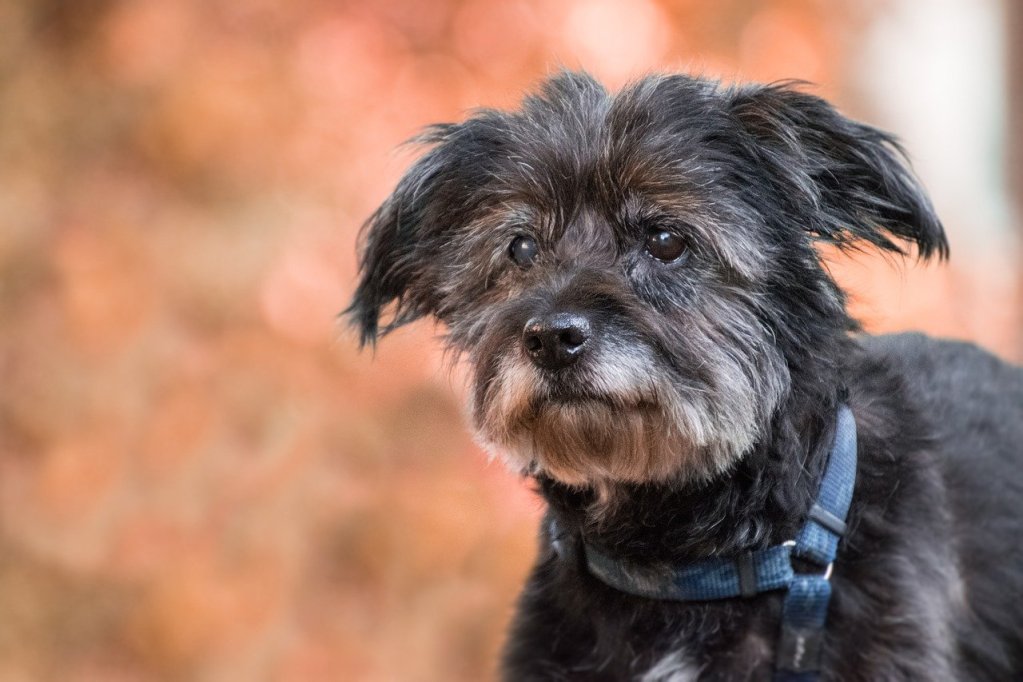
How to care for a dog at the end of his life
Whether your dog has been ill for a period of time or their advanced age has finally caught up to them, you’ll want to do everything in your power to keep your dog comfortable during their last few days. While saying goodbye to a beloved pet is always difficult, here are a few ways you can help keep them comfortable at the end of his life.
Make sure your dog has a comfortable bed
Your dog’s ability to regulate their temperature decreases with age, so make sure they have a cozy place to sleep. If your dog’s temperature is low, warm a few blankets or towels in the dryer to give them an added boost of warmth. Similarly, your dog may be prone to overheating. Panting and bright red gums are indicative of a dog who can’t stay cool. Try popping their blanket in the freezer until it’s cool to the touch, and make sure they have access to cold water if they’re thirsty. Your vet may also recommend giving them water via a syringe.
Give your dog food he can easily chew
If your pooch still has an appetite, make sure to keep their favorite canned food on hand. Many veterinarians recommend watering down wet food or mixing it with broth. You can also give them plain chicken and rice if dry kibble upsets their stomach. Now is the time to let your pup eat as many of their favorite treats as they want.
Let your dog set the tone
As much as you want to be with them during their final moments, some dogs are more comfortable being alone. Don’t crowd your dog if they choose to retreat to their favorite corner. If they prefer to be with you at all times, let them get as close as they want and enjoy his company.
Discuss medication with your veterinarian
If your dog is in pain, talk to your vet about medication that can help alleviate their discomfort.
Have an end-of-life plan
No matter how much you want to avoid thinking about it, preparing for your dog’s final days in advance will make the process less complicated. Discuss your options with your vet, and have contact information on hand to make burial or cremation arrangements.
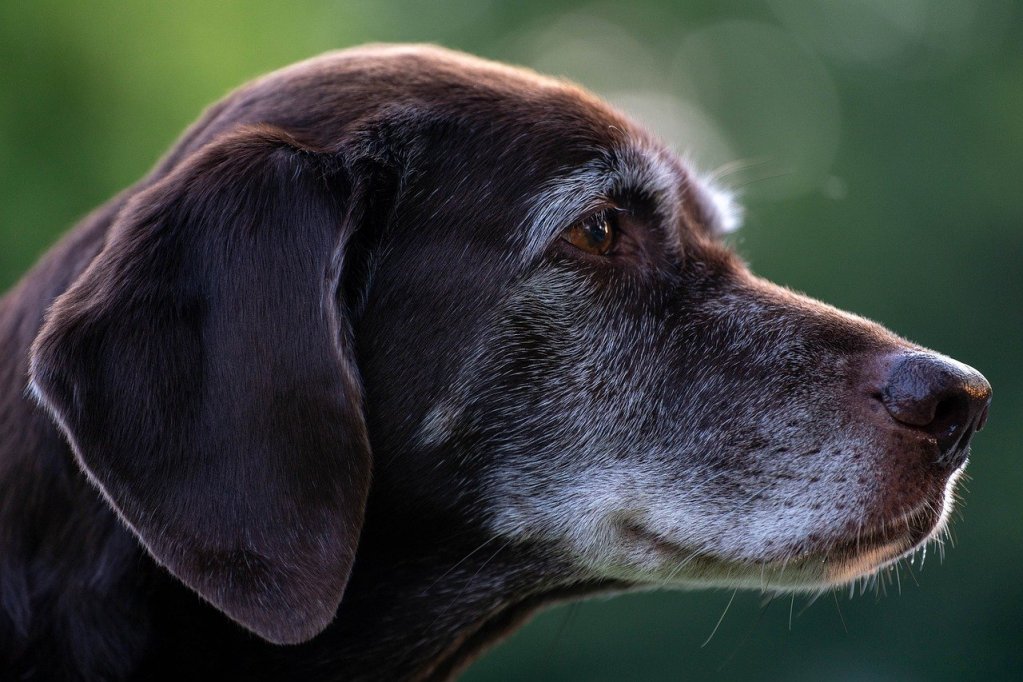
Coping with pet loss
There is no “normal” way to grieve. You may feel angry, heartbroken, or even numb after your dog passes. Don’t let anyone tell you that your beloved fur baby was “only a dog,” and don’t let others rush you through the grieving process. Reach out to family and friends, join a pet loss support group, or contact a therapist who can help you get through your loss. Mourning the loss of a pet is never easy, and it’s unfair that their lives are so short, but your memories of your beloved fur baby will last a lifetime.

